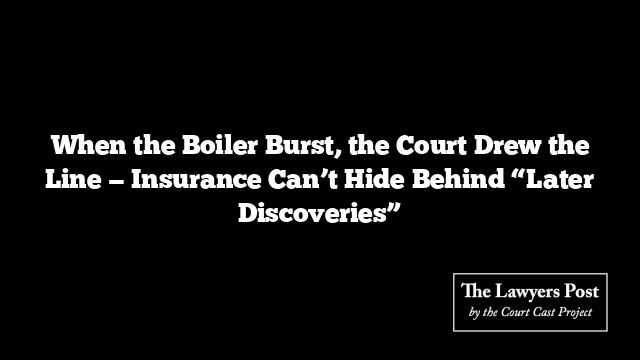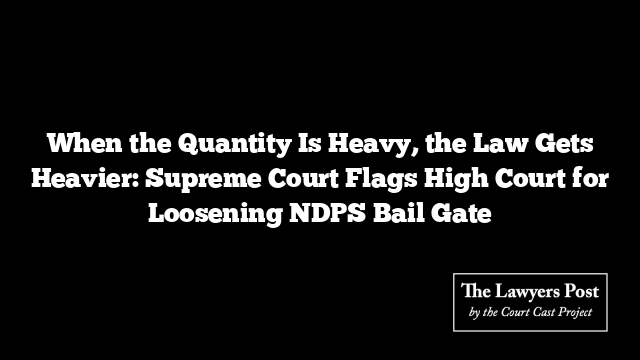In a judgment that reads like a quiet rebuke wrapped in legal precision, the country’s highest court made it clear: an insurance company cannot dodge its promise by pointing to damage it noticed only after issuing the policy. If the insurer failed to spot a defect earlier, that lapse cannot be weaponised against the insured.
The case revolved around a sugar factory whose boiler exploded—a violent, unmistakable event. The boiler had been insured for ₹1.60 crore. After the blast, the insurer tried to slip away from liability, insisting that the internal corrosion came to light only after the policy was issued and therefore the claim was barred.
The bench, however, wasn’t persuaded. It cut through the argument with a simple principle: insurance exists precisely to shield against the unexpected. A defect that surfaces only after an accident cannot become a convenient escape route for the insurer.
The judges underscored that insurers are expected to satisfy themselves about the condition of what they insure before issuing a policy. If something went unnoticed, that’s not the insured’s burden to carry.
The dispute had travelled through multiple forums. A state commission had once awarded compensation to the factory, but that decision was later overturned by a national commission, which sided with the insurer’s corrosion theory. The Supreme Court has now reversed that, describing the insurer’s stance as an afterthought lacking factual support.
The Court noted there was no allegation of deceit, no claim that the factory concealed defects, and no evidence that the corrosion was visible prior to the explosion. The survey report itself had surfaced only at the appellate stage. The insurer, the Court suggested, appeared more interested in eliminating the claim than in establishing the truth.
Reaffirming that insurers can repudiate claims only on very narrow grounds—such as proven nondisclosure or a clear contractual exclusion—the bench found neither applicable here. The explosion was acknowledged. The corrosion was discovered because of the explosion. And no clause barred such a scenario.
With that, the appeal was allowed. The case now returns to the commission to calculate how much compensation is actually owed.
A reminder, perhaps, that an insurance contract is not a maze of loopholes—it’s a promise.





